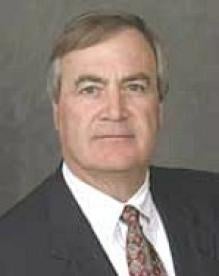Judge Totenberg remanded the case brought by TransCardiac Therapeutics, Inc. (“TransCardiac”), against Ajit Yoganathan, Ph.D, Jorge H. Jiminez, Ph.D., Vinod H. Thourani, M.D., Emory University, Georgia Tech Research Corporation, and Georgia Tech Foundation, Inc. (“Defendants”). The removal of this case from the State Court of Fulton County was the subject of a previous blog.
In the Order, Judge Totenberg reviewed the facts and allegations made by the removing party, Emory University (“Emory”), and determined that no substantial federal question is presented by TransCardiac’s complaint.
A salient fact from the history as related by the Court is the uncontroverted creation of the TransCardiac’s intellectual property by Dr. Lattouf (identified in the Order as “the Release IP”). The initial conception of the Release IP was described in U.S. Patent Application No. 60/340,062 (“the ‘062 application”) relating to minimally invasive therapeutic procedures for patients with congestive heart failure, the ownership of which was transferred back to Dr. Lattouf (and then later to TransCardiac) in accordance with Emory’s IP Policy. Pursuant to the agreement Emory was to receive a 2% royalty. The Release IP grew, by agreement, to include improvements as captured in over two dozen additional patent applications. TransCardiac was formed in 2003 and received assignment of the Release IP. Complete disclosure of the Release IP to Emory was encouraged and the agreement covered Emory obligation of confidentiality.
In 2005 Dr. Yoganathan (including his assistant, Dr. Jiminez) was hired TransCardiac for $10,000 to build and test the Release IP using labs at Georgia Tech. TransCardiac received oral assurances of confidentiality but a promised non-disclosure agreement was never delivered. Dr. Yoganathan, at the invitation of TransCardiac, joined its Scientific Advisory Board in 2005 (as did Dr. Thourani, another named defendant and employee of Emory). Dr. Thourani also agreed to the confidentiality terms. Thereafter, Dr. Thourani failed to disclose to TransCardiac that he joined a competitor’s Scientific Advisory Board in 2007. During this time period, “Dr. Thourani ultimately took over for Dr. Lattouf by directing the research and development efforts that took place at the Georgia Tech labs.”
According to the Order, TransCardiac received a $45 million dollar offer for the Release IP plus a 3% royalty in 2010 from a venture capital group. This offer was disclosed to Emory and a meeting occurred shortly thereafter. Less than two months later, Transcardiac alleged that Defendants “began a misleading public relations campaign to portray the individual Defendants as the owners and inventors of specific parts of Dr. Lattouf’s IP.” The Complaint went on to allege this action “confused, if not destroyed, the market for the IP in question.”
TransCardiac accused the Defendants of improperly licensing technology to a competitive rival of TransCardiac alleging “1) breach of contact; 2) breach of oral contract; 3) breach of duty of confidential relations; 4) tortious interference with business relations; 5) tortious interference with contract; 6) breach of legal duties and contract; 7) fraud; 8) conspiracy; and 9) false advertising.”
The Court recited the four-part test from Gunn v. Minton, 133 S. Ct. 1059, 1065 (2013), that summarized the required elements to find a federal patent issue if the patent was “(1) necessarily raised, (2) actually disputed, (3) substantial, and (4) capable of resolution in federal court without disrupting the federal-state balance approved by Congress.” The Court noted that Emory as the removing party had the burden of establishing all four parts of this test. Emory argued that TransCardiac’s claims necessarily required proof of Lattouf’s inventorship of the Release IP. The Court addressed each of the parts of the Gunn test.
With regard to necessity, the Court noted that inventorship was not involved in all of TransCardiac’s claims. With regard to claims that involved ownership of the Release IP, the Court noted that Release IP was specifically defined to include issued patents, which are presumed valid and TransCardiac “may rely on that presumption without raising an inventorship issue.” The Court cited Bd. Of Regents, Univ of Texas Sys. Ex rel. Univ. of Tex. at Austin v Nippon Tel. & Tel. Corp., 414 F.3d 1358, 1363 (Fed. Cir. 2005); Speedco, Inc. v. Estes, 853 F.2d 909, 913 (Fed. Cir. 1988). Nevertheless, the Court gave Emory the benefit of the doubt that the Release IP included applications for which no patent had as yet issued. Thus, the Court moved on to the next element of the Gunn test.
The Court found that no “actual inventorship dispute” was presented by the complaint. TransCardiac alleged “Defendants falsely described themselves as inventors of some particular technology, without reference to inventorship.” The Court notes that TransCardiac “alleges that it has never received a claim of co-ownership or co-inventorship of the Release IP by Defendants.” Despite the conclusiveness of this test element, the Court addressed the final two elements as well.
The Court expressed doubt that the complaint presented a “substantial inventorship issue.” This conclusion was based on the Court’s opinion that determination of the issues would not alter patent rights or require a party to challenge the validity of any patents. In addressing the federal-state balance, the Court noted that TransCardiac’s state court claims sounded in contract and tort and did not otherwise meet the threshold of federal litigation.
Thus, the Court found that the matter could be resolved in state court without a substantial patent issue necessarily being handled by federal courts. Further, the Court denied Emory's request to grant supplemental jurisdiction over the state law claims as there were no claims supporting federal jurisdiction to which such claims could be appended.
The case is TransCardiac Therapeutics, Inc. v. Yoganathan et al., No. 1:13-cv-03089-AT, Dkt. No. 27 (Order granting remand) in the U.S. District Court for the Northern District of Georgia, Atlanta Division, assigned to U.S. District Judge Amy Totenberg.



 i
i

